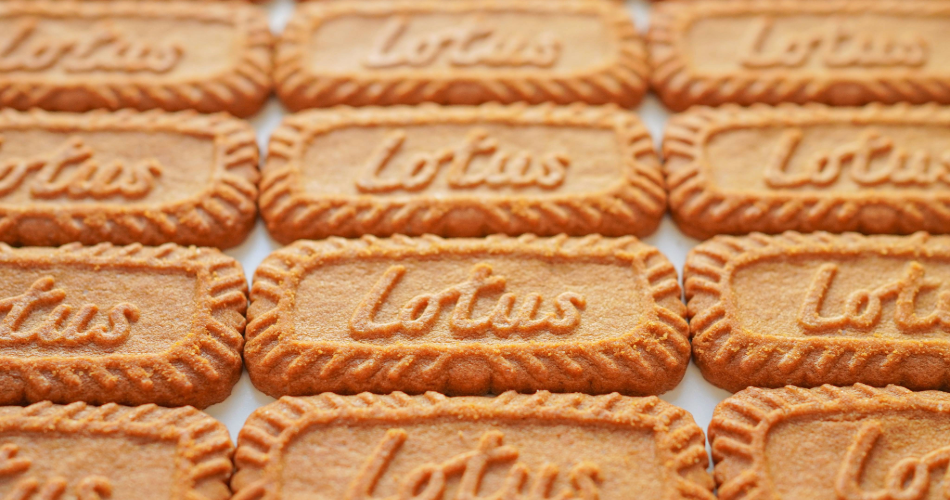
With consumers increasingly choosing brands that are more environmentally friendly, we have seen a significant increase in ‘green’ branding, both from new companies with innovative and original technologies, and from more established brands diversifying into new, green product lines.
So how can you use trade marks to get your environmentally friendly brand message across and make sure you stand out from the crowd?
Avoiding Allegations of ‘Greenwashing’
Unfortunately, not all companies really are as environmentally conscious as they are trying to appear. In its Green Claims initiative, the European Commission stated that 53% of green claims give vague, misleading or unfounded information and half of all green labels offer weak or non-existent verification.
This practice of conveying false or misleading information about how environmentally friendly a business’ products are is known as “greenwashing”, and it’s a particularly ‘hot topic’ right now.
Regrettably, this may lead consumers to become increasingly sceptical about the credibility of green claims being made by brand owners, even when they are entirely genuine.
One way to try and avoid allegations of greenwashing could be to seek approval to use a recognised and established mark certifying your green credentials. Being able to use such a mark on your product demonstrates to consumers that you have objective recognition of the authenticity of the green claims you are making.
Certification Marks
Unlike a normal trade mark, which is designed to distinguish the goods and services originating from one trader from those of another, a certification mark is used by authorised users as an indication that goods or services possess a particular characteristic. The proprietor of the mark must not use it themselves; instead, they grant authorisation to others who can demonstrate their goods or services meet the requirements for use.
One of the most famous registered certification marks in the UK is the Red Tractor Logo of Assured Food Standards. This is only found on British food and drink products that meet specific standards for farming. The mark tells consumers that the products have been responsibly sourced and produced and come from crops and animals that have been well cared for.
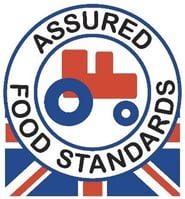
In the green technology space, European Bioplastics e.V. owns the registered certification mark in their “seedling” symbol in the UK and EU. This can only be used on products which they have certified as being industrially compostable according to the European standard EN 13432.

According to their website, certification requires chemical testing; including of the level of heavy metals; testing for biodegradability; and ecotoxicity tests, examining the effect of resultant compost on plant growth.
Within the EU, Asociación Valor Ecológico CAAE, a certification body for organic agricultural products, owns a registered certification mark which tells consumers that agricultural goods it is applied to have been produced in compliance with their standards for organic farming.
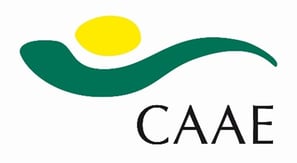
Obtaining registration for a certification mark is a fairly complex, and sometimes costly, procedure. Applications in the UK and at the EUIPO must be supported by a set of regulations including details about who is authorised to use the mark; the characteristics that must be present in the goods or services; how the mark owner tests those characteristics and supervises use of the mark; any fees that are payable; and procedures for resolving disputes. The trade mark offices examine the regulations to ensure they are clear and accessible so that anyone can understand the requirements that must be met to use the mark.
Other Licensed Marks
Some entities acting in a similar capacity have created (and in some instances registered) a logo to represent certain standards and then licenced its use to third parties they feel are suitable. In some respects, this is similar to granting a licence to use a certification mark; the trade mark owner should set specific standards for the licensee and take steps to ensure compliance with them.
Soil Association claims to be the UK’s “leading organic certifier offering a huge range of organic and sustainable certification schemes across food, farming, forestry, beauty & wellbeing, fashion & textiles and catering”. According to their website, their Soil Association Organic logo appears on 70% of organic products in the UK.
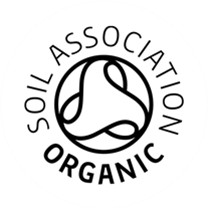
Companies can apply for a licence to use the logo, and this will be granted if the products comply with standards set by the Soil Association about the production of organic food. They state that companies must “go further in key areas such as animal welfare, protecting human health, and safeguarding the environment”.
Collective Marks
Another way to demonstrate your genuine commitment to all things green is to join a recognised scheme or association operating in the green space. This will then entitle you to use their badge of membership: a collective mark. A collective mark indicates that the goods or services bearing the mark originate from members of a trade association, rather than just one trader.
Carbon Architecture Limited has a registered collective mark for Green Mark, a community for businesses working to reduce energy usage. Members have had their performance reviewed and actions created to help make their business more sustainable.
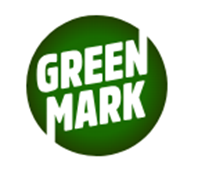
Building Brand Partnerships
Some brands looking for ways to make their business more sustainable and environmentally friendly may find that the most effective way to do this is to identify a like-minded commercial partner whose sustainability aims and objectives are aligned with their own – not only from an ideological perspective, but also, crucially, from a practical one. Entering into a formal agreement to structure the collaboration with that partner is then the next commercially prudent and logical step for both parties to progress their individual and collective missions.
TerraCycle is an innovative company that creates programmes to allow consumers to recycle products and packaging that are traditionally hard to recycle.
It owns trade mark registrations for the TERRACYCLE logo mark associated with the business covering, amongst other things, “recycling services featuring a reuse program for upcycling and reusing packaging”.

An example of one of their brand specific recycling programmes is the Babybel Free Recycling Programme. This allows consumers to send off the packaging from their Babybel cheeses, such as the wax and plastic mesh bag, to be recycled free of charge.
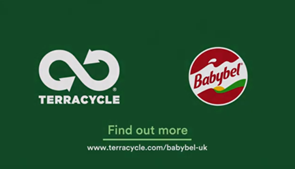
Credit: www.terracycle.com/en-GB/brigades/babybel-uk
BABYBEL and associated trade marks are owned by French company BEL.
Entering into a brand collaboration like this demonstrates your commitment to the environment in a real and tangible way. However, depending on the nature of the collaboration and the obligations that the parties each undertake, you will need to carefully consider the contractual and practical implications of the venture, as well as taking steps to protect related aspects of your intellectual property (IP).
In addition to the comprehensive agreement governing the ‘nuts and bolts’ workings of the project, an important element of the partnership will be launching and communicating its existence to the wider public. This means that each party will need to consider carefully how the other can use their existing IP, license it appropriately, and ensure any resulting goodwill generated through use accrues to the right owner. Some important questions that the parties will want to address when preparing to license its relevant marks may include:
- Exactly which marks will be the subject of the grant of licence to the partner, and in exactly what form will each party be happy for the other to use? (Consider word and logo marks, colour, size, and image quality, as well as positioning.)
- How broad should the scope of use be? (Consider use on websites, social media, communications to customers, advertising, packaging etc.)
- Should each party have review and approval powers over the other’s use of the licensed marks? (Consider the time costs associated with managing such processes against the security provided by having final approval control.)
A brand collaboration may in some cases also result in the creation of new IP. In these circumstances, the parties need to agree who will own the new IP, who will be responsible for maintaining and enforcing such IP and in the same way as above, how it can be used.
If you are considering entering into a new branding arrangement, or need advice on any aspect of branding your green products, please get in touch with our trade mark team who would be delighted to assist you.
Authors
Emma is a Senior Professional Support Lawyer for the Legal and Trade Mark Practice Groups and is responsible for producing, managing and maintaining the bank of know-how, precedents and other materials and resources. In addition, she delivers regular training, updates and articles for the Practice Groups, the firm and its clients, covering developments in the law and in practice. Emma has a BSc in Biology from the University of York and obtained a Graduate Diploma in Law from the University of Law, York. She completed a training contract in the Leeds office of top regional law firm, qualifying as a solicitor in 2013.
Rebecca is a Partner and Chartered Trade Mark Attorney at Mewburn Ellis. She handles all aspects of trade mark work, with a particular focus on managing large trade mark portfolios, devising international filing and enforcement strategies, and negotiating settlements in trade mark disputes. Rebecca has extensive experience of trade mark opposition, revocation and invalidity proceedings before the UK Intellectual Property Office (UKIPO), including very complex evidence based cases. Rebecca also has a strong track record in overcoming objections raised to trade mark applications.
Email: rebecca.anderson@mewburn.com
Sign up to our newsletter: Forward - news, insights and features
Our people
Our IP specialists work at all stage of the IP life cycle and provide strategic advice about patent, trade mark and registered designs, as well as any IP-related disputes and legal and commercial requirements.
Our peopleContact Us
We have an easily-accessible office in central London, as well as a number of regional offices throughout the UK and an office in Munich, Germany. We’d love to hear from you, so please get in touch.
Get in touch


